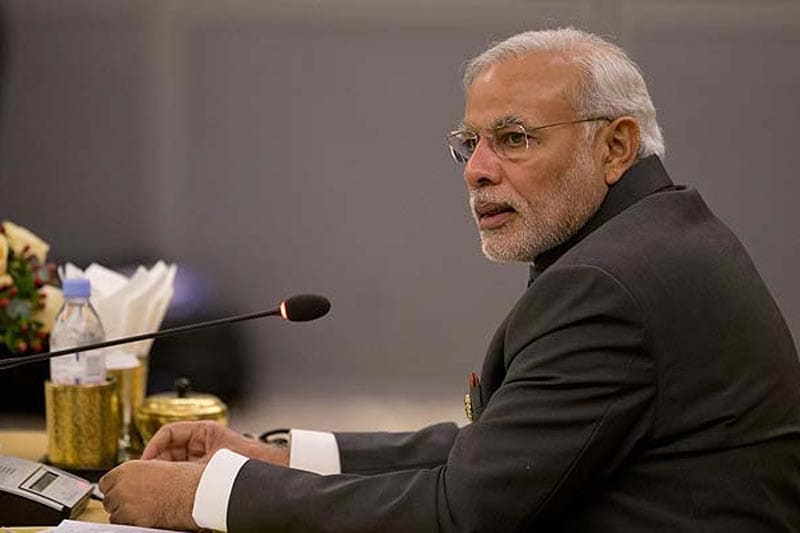-

3. Narendra Modi: The government's focus is on how to convert the power of the youth which can used for development of the nation. Therefore, we not only launched a skill development programme for the youth but also created a new ministry, with its own budget and a set of officers to take the programme forward. (AP)
-
1. Startup India, Standup India: “The biggest challenge facing startups is the confusion in the investment climate. There is plenty of money in the ecosystem, but raising money is still hard in India than overseas,” said Ravi Narayan director at Microsoft Ventures. He adds, “biggest challenge facing start-ups is the confusion in the investment climate”.
-
2. Startup India, Standup India: The poster boys of the Indian start-up ecosystem are the e-commerce companies such as Flipkart, Snapdeal and Shopclues. These online retailers have taken major chunk of the private investments and have helped in the growth of startup ecosystem. But they are stuck in tax wrangles.
-
3. Startup India, Standup India: The case in point is the move by various state governments including Karnataka, Kerala and Delhi, that have proposed to impose a 1% value added tax on e-commerce firms. State tax officials are of the view that since e-commerce companies hold, store and deliver products on behalf of the sellers, and so they can be considered as “dealers” and are liable to pay tax.
-
4. Startup India, Standup India: E-commerce websites allow sellers to sell products using their platforms but they don’t sell it themselves. This creates ambiguity on value added taxation, says Rupak Agarwal business head at Godrej Properties. In one such dispute, Flipkart successfully got a favourable judgement when the Kerala High Court said the Bangalore-based company need not pay tax. Delhi has clarified on its tax rules as well, while Rajasthan has classified e-commerce firms as marketplaces thus exempting them from paying VAT. However, the lack of a law to define this is yet to be made in many states.
-
While close to 60% of the issues are being been sorted out, iSPIRT argues that that is not enough. Even all the contentious issues are resolved, there will be yet another reason for startups to domicile outside India. Unlike in other cases, here the competition is between India and possibly the US and Singapore. Much will depend on what all Finance Minister Arun Jaitley will roll-out to ensure that India is very much the home for startups.
-
2. Budget 2016: Startup India, Standup India funds – Vineet Singh Co-Founder & CEO of Buildzar.com feels that ecommerce player and startups faces a challenge of access to capital. “Too much money too early in the game is instigating excessive burning of cash. Online marketplaces operating in niche segments generally have five to six well-funded players battling it out for business. This is leading to tight competition in prices and pushing the margins to almost nothing,” he explained. “The Indian Government should also provide clarity on how it is planning to use the Rs.10,000 crore fund it had earmarked for the program “Startup India, Standup India” in 2014.
-
4. Budget 2016: Further incentives for startups – India is a nation where entrepreneurship is on the rise and startups are cropping up nearly every day to cater to needs of a wider target audience. The PM Narendra Modi-led NDA government has shown in the recent past that it is keen to improve the ecosystem for startups. In January 2016, the government announced exemption of income tax on the profits made by startups for the first three years among other benefits. Start-ups however opine that they do not make profits in the first three years and thus are expecting that this tax holiday be extended to a least of five years during the Budgetary announcements.
-
The issues that have been raised include favourable intellectual property regime, ease of incorporating and liquidating companies, allowing foreign venture capital investments across sectors, and a harmonised tax rate for both listed and unlisted entities. The idea behind the initiative is to make India a preferred destination for startups.
-
-
5. Budget 2016 expectations: “Implementing these will dramatically increase the flow of risk capital to startups, something we will need badly as the start up initiative will enthuse innovators around the country to turn entrepreneurs and they will then be disheartened if no risk capital is available to fund their start ups. This is much need capital as last year, Indian companies raised only $ 2 billion from IPOs but $ 20 billion from VC/PE money, 90% of which comes from overseas,” he explained.